The event is dedicated to enhancing the ability of community police officers, Educational Safety Service workers, and patrol police to identify and respond to domestic violence.
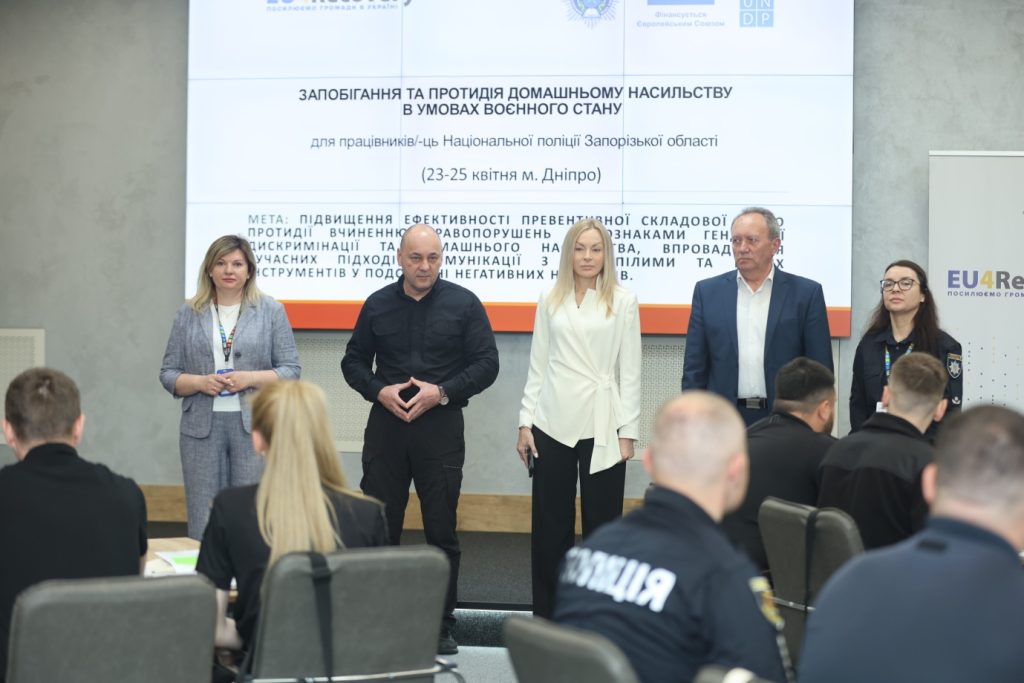
The training is organized and conducted by the Dnipro State University of Internal Affairs in cooperation with the United Nations Development Programme (UNDP) in Ukraine, within the framework of the project “EU4Recovery – Empowering Communities in Ukraine,” funded by the European Union.
The event was officially opened by:
Ihor Magdalyna, First Vice-Rector of DSUIA, Candidate of Technical Sciences, Associate Professor;
Larysa Nalyvaiko, Rector’s Assistant on Gender Issues, Doctor of Law, Professor, Honored Lawyer of Ukraine;
Svitlana Ryzhkova, Public Security Specialist at UNDP Ukraine.
The key goal of the training is to strengthen the coordination and interaction system among law enforcement representatives in protecting individuals affected by domestic violence and to improve support mechanisms, especially under martial law. The target audience included representatives of the National Police from the Zaporizhzhia region.
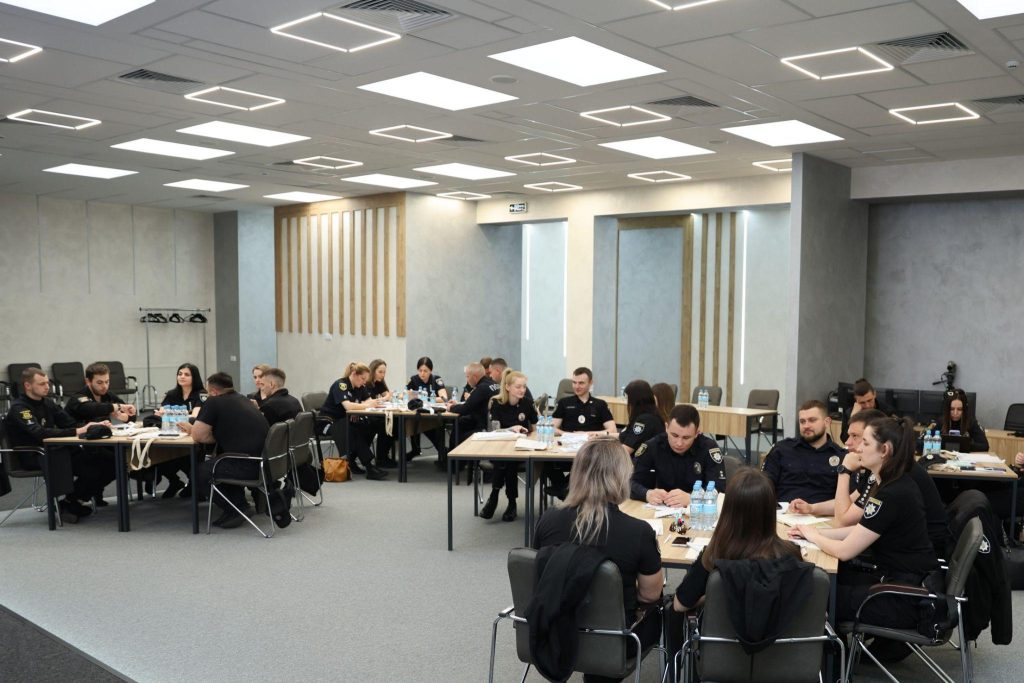
Trainers included:
Alina Harkusha, Associate Professor of the Department of Criminal Procedure, Candidate of Law, Police Major, specialist in combating domestic violence;
Mykola Repan, Senior Lecturer at the Department of Administrative Law and Procedure, expert in domestic violence prevention.
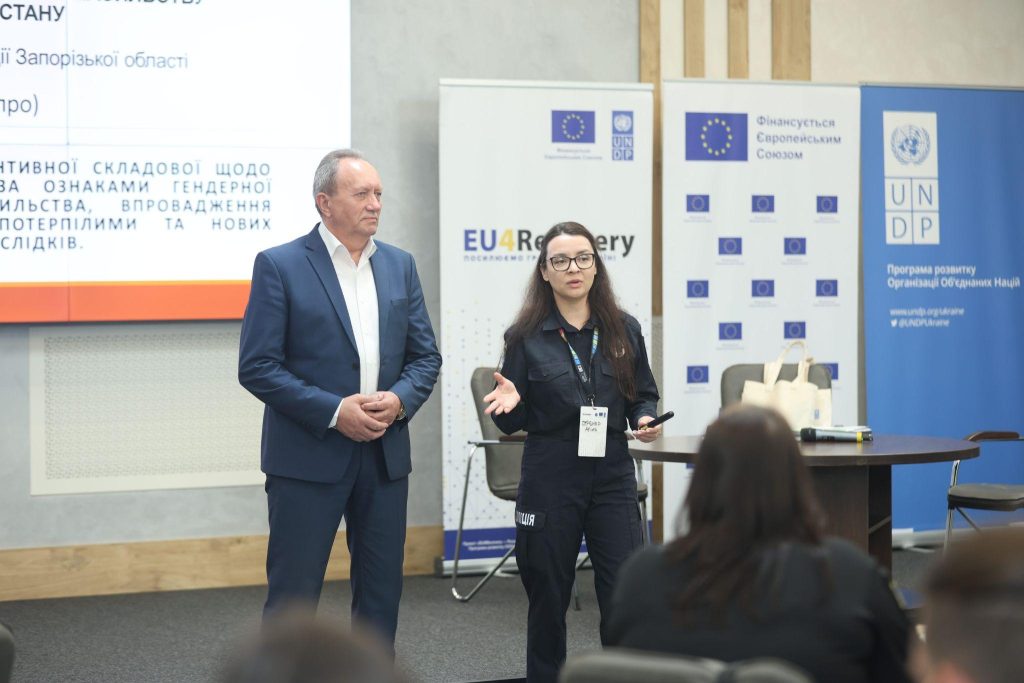
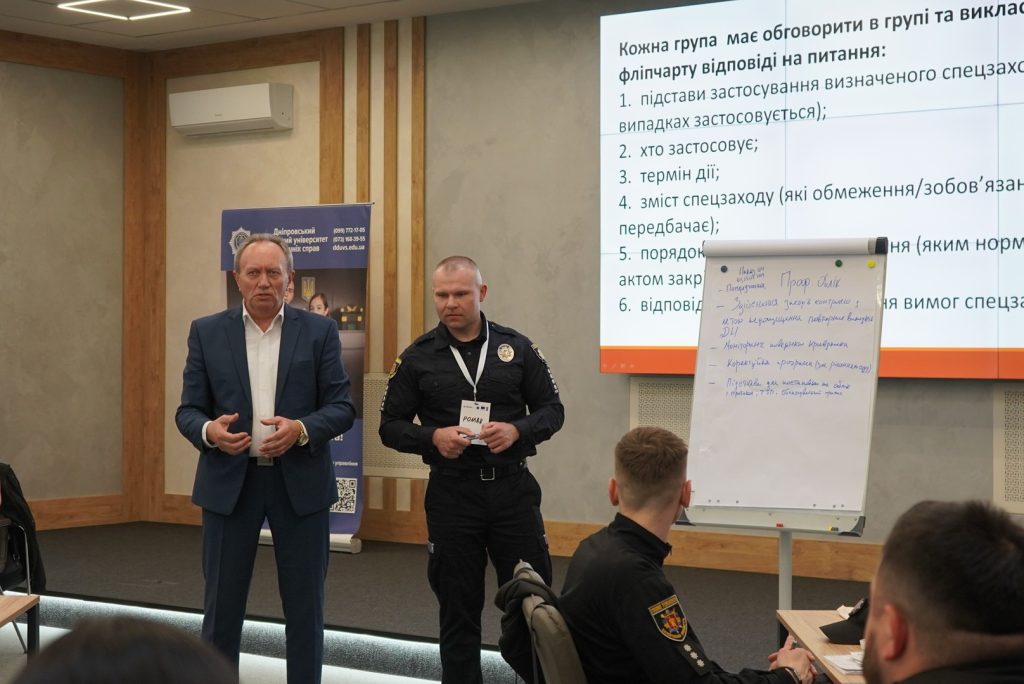
The training was delivered in a sessional format. Topics covered included:
National legislation on prevention of gender-based and domestic violence;
Key principles and tools for assisting victims of domestic violence, particularly under martial law;
Protective measures within the system for combating domestic violence;
Development of a joint action algorithm to enhance cooperation among police, prosecutors, and the judiciary;
State programs for working with offenders and approaches to corrective intervention.
Participants also engaged in interactive activities such as group discussions, practical exercises, reflections, and case-based problem solving.
Upon successful completion of the training, all participants will receive certificates.
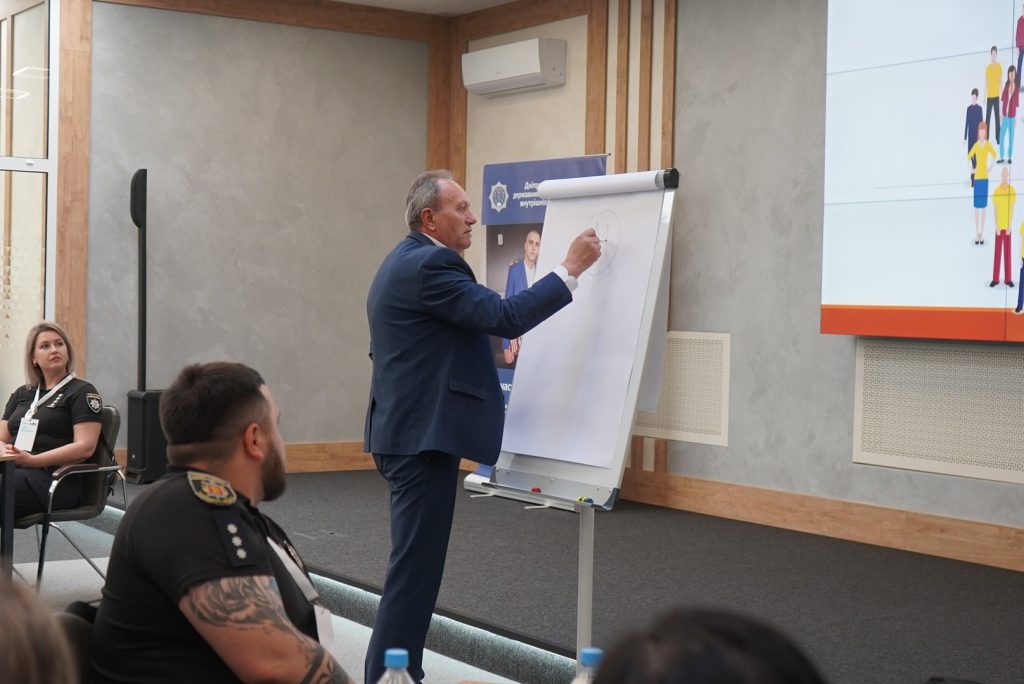
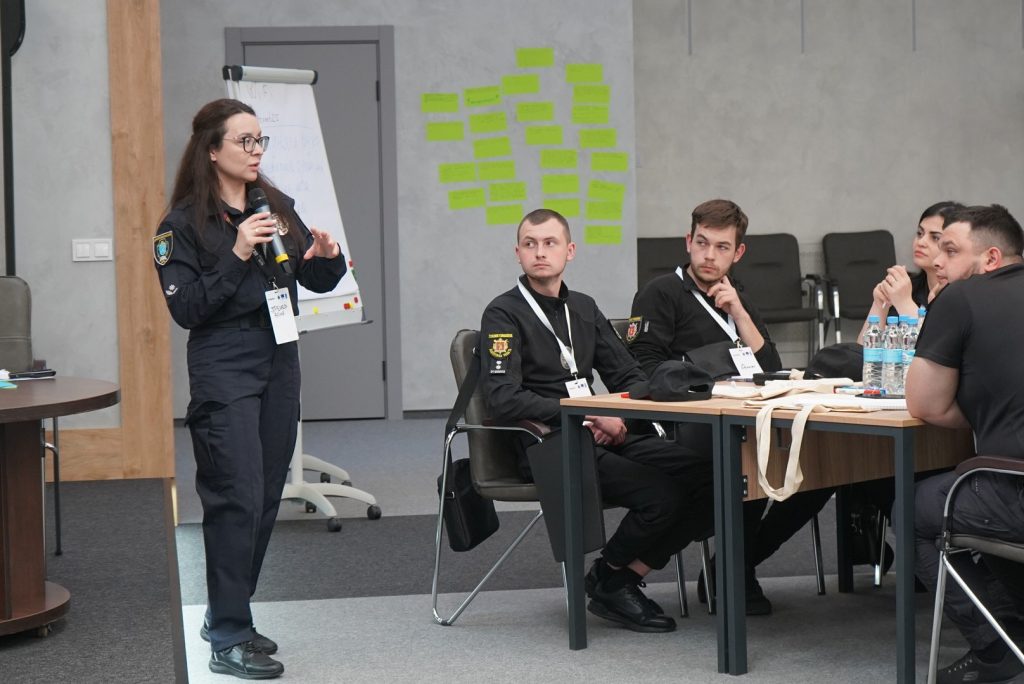
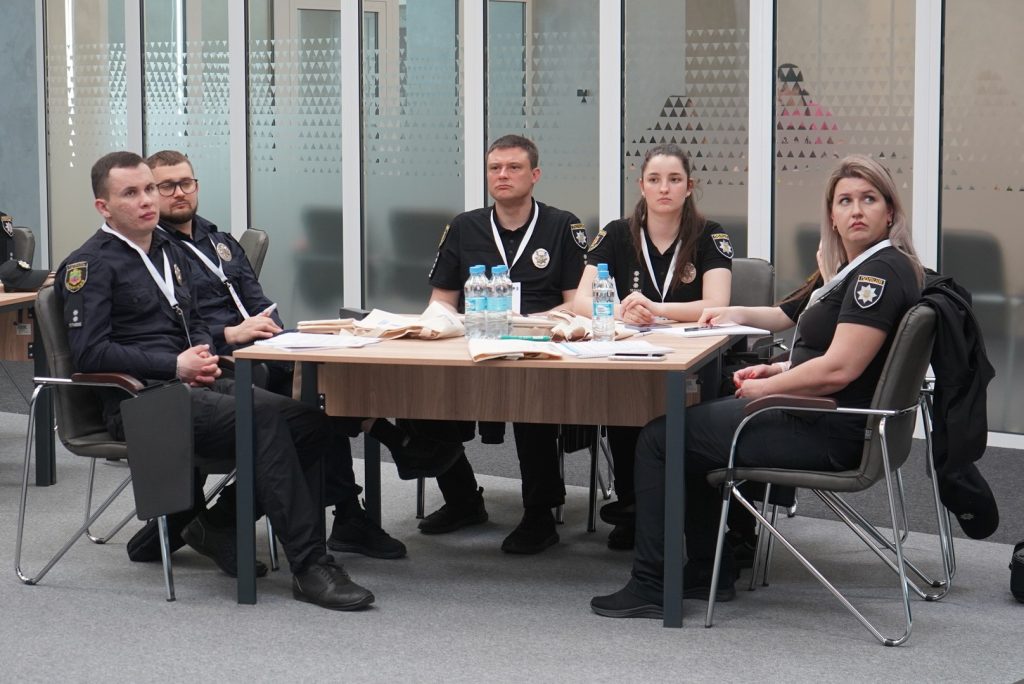
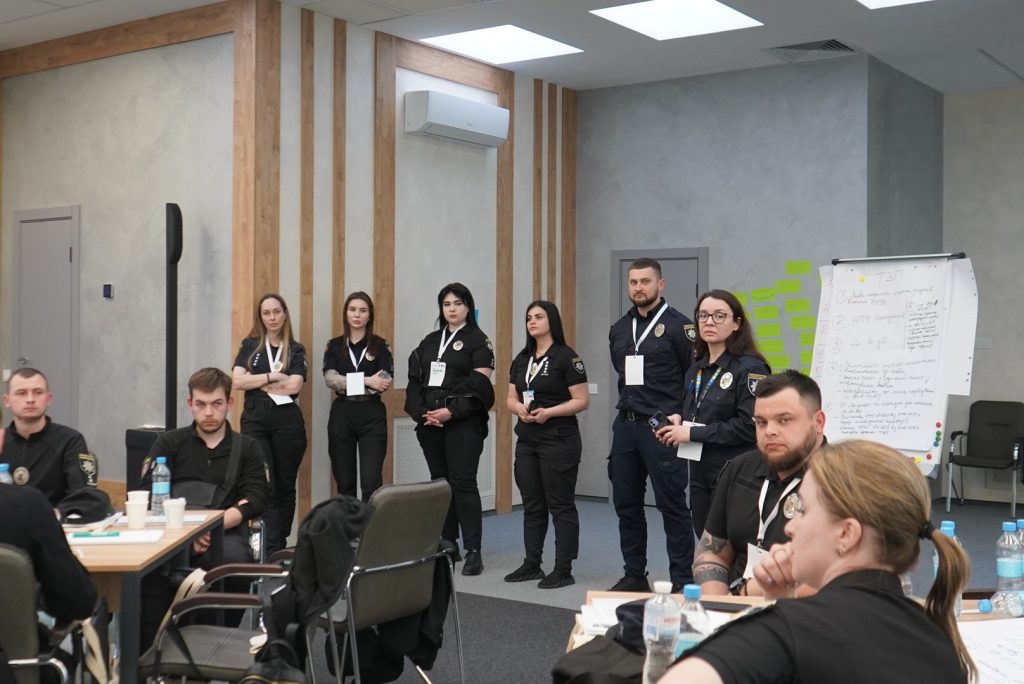
— 285

